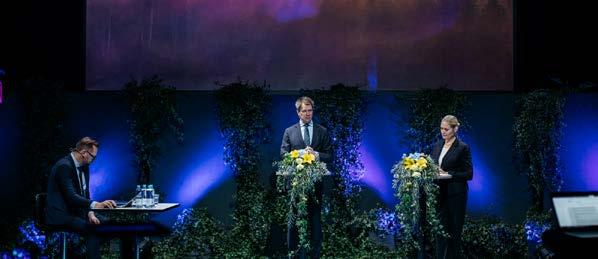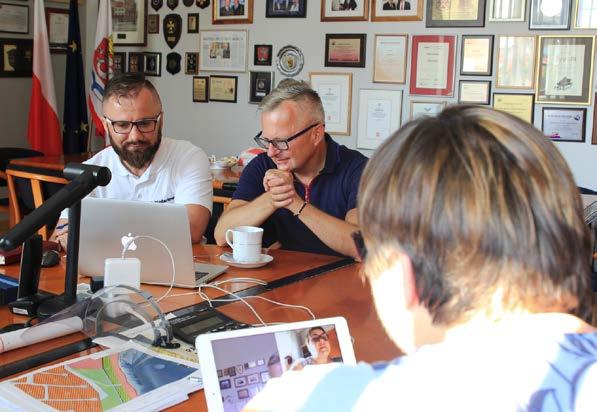
2 minute read
Rostock wins “SMART CITIES made in Germany
ROSTOCK WINS “SMART CITIES MADE IN GERMANY” AND BECOMES A SMILE CITY
The Federal Minister of the Interior, Construction and Homeland Horst Seehofer has announced that the City of Rostock now is a model of a Smart City of the second season of this federal funding program.
Advertisement
By means of Smart Cities model projects, the German Federal Government is helping municipalities to strategically shape digitization in terms of integrated, sustainable urban development. The aim of the funding program is to develop and test cross-sectoral digital strategies for future urban life.
”Now we can show in Rostock that with the help of digitization forecasts we would be able to implement digital citizen services and new technologies that make our city more humanitarian, sustainable and modern”, the Mayor says. ”We still have been too much attached to yesterday’s times. As a model city, we now dare to leap into tomorrow! We are focusing on the people. By digitizing modern mobility, we want to interprete green and soft economies as visionary model for our urban development.”, says Mayor Claus
Ruhe Madsen https://smile-city-rostock.de/
At the same time, the Mayor wants to take away fears from new technologies. “Digitization projects can only be successful if they involve the people. But that doesn’t work overnight. It’s not about eliminating jobs by rationalizing work and responsibility. The aim is to make processes more transparent, more effective and more citizen-friendly, and to avoid unnecessary work and long waiting times. The corona pandemic has shown us how quickly work processes can change and that digitization also leads to a better quality of life. We want to use this boost as a tailwind on our way in the coming months and years.”
The City of Rostock applied for participation in the federal funding program on May 20, 2020. The application focused on four areas: Wide acceptance and participation should encourage the active population to improve their urban environment and thus strengthen the digital transformation; City services should be intelligently linked; Common and attractive public spaces, intelligently linked, with a high data comfort and inviting to stay, shall be created; A cooperation platform should be implemented. This process is expected to be monitored and documented scientifically.
Part of the application was not only the involvement of the municipal companies and partners from the region, but also the transfer of knowledge from and towards Rostock’s twin cities.
The first phase of the project primarily involves the citizens, but also the companies of the city. Together with the urban society, digitization strategies are to be developed for Rostock. The first measures are foreseen to be implemented in the city already by the end of 2021.










